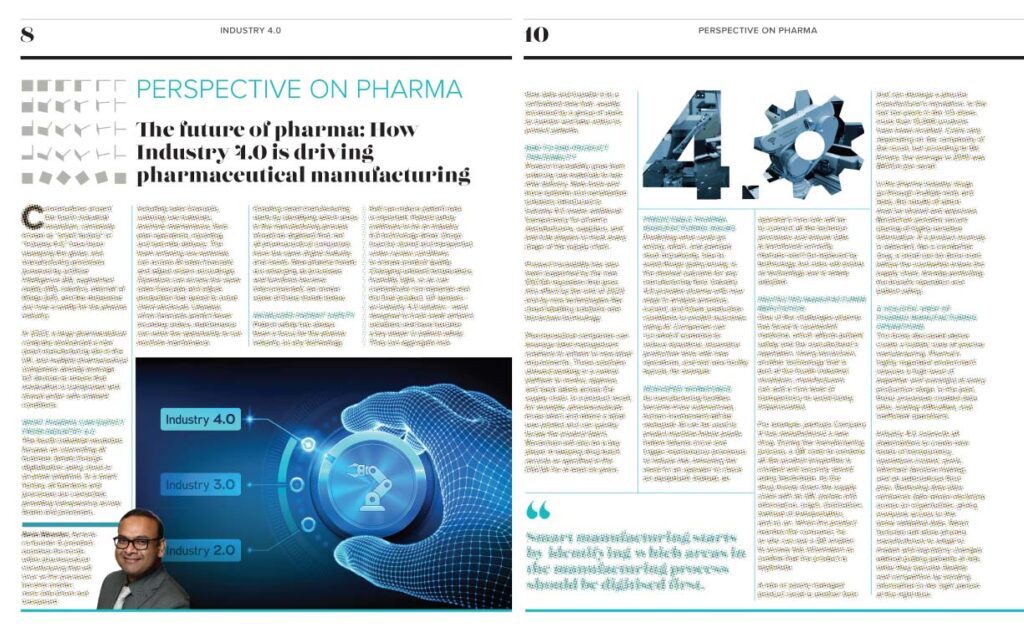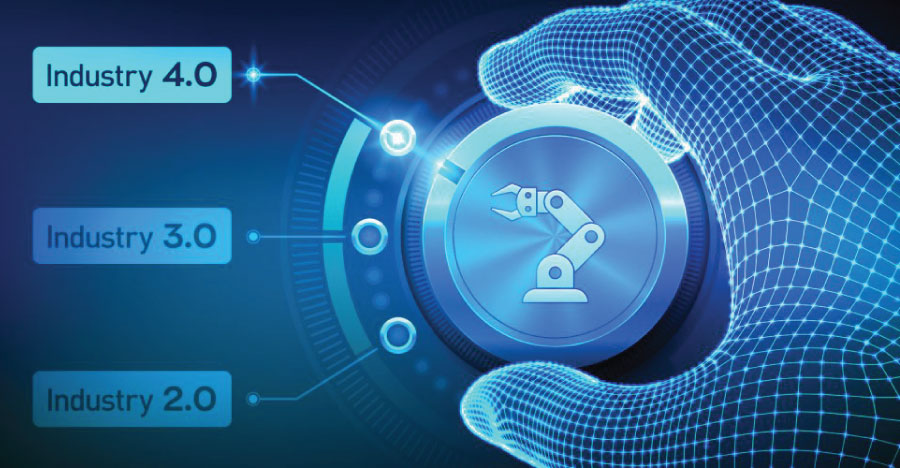Amin Sikander, Synkrato Co-Founder & President, examines the trends within pharma manufacturing that will incur as its processes become smarter, more data-driven and transparent. Published in European Pharmaceutical Manufacturer
Perspective on Pharma
Conversations around the fourth industrial revolution, commonly known as “smart factory” or “Industry 4.0,” have been sweeping the globe, and manufacturing processes powered by artificial intelligence (AI), augmented reality (AR), robotics, internet of things (IoT), and the metaverse are now a reality for the pharma industry.
In 2022, a large pharmaceutical company announced a new smart manufacturing site in the UK, and multiple pharmaceutical companies already leverage IoT devices to ensure that medication is transported and stored under safe ambient conditions.

What pharma can expect from Industry 4.0
The fourth industrial revolution focuses on connecting all business details through digitalisation using cloud or on-prem solutions. In a smart factory, all functions and processes are connected, providing transparency across teams and processes, including sales forecasts, ordering raw materials, machine maintenance, floor plan operations, reporting, and last-mile delivery. The team ordering raw materials can access AI sales forecasts and adjust orders accordingly. Operators can access the same sales forecasts and adjust production line speed to avoid client stockouts. Likewise, when forecasts predict fewer incoming orders, maintenance can seize the opportunity to run machine maintenance.
Visit European Pharmaceutical Manufacturer to read the rest of the article.
